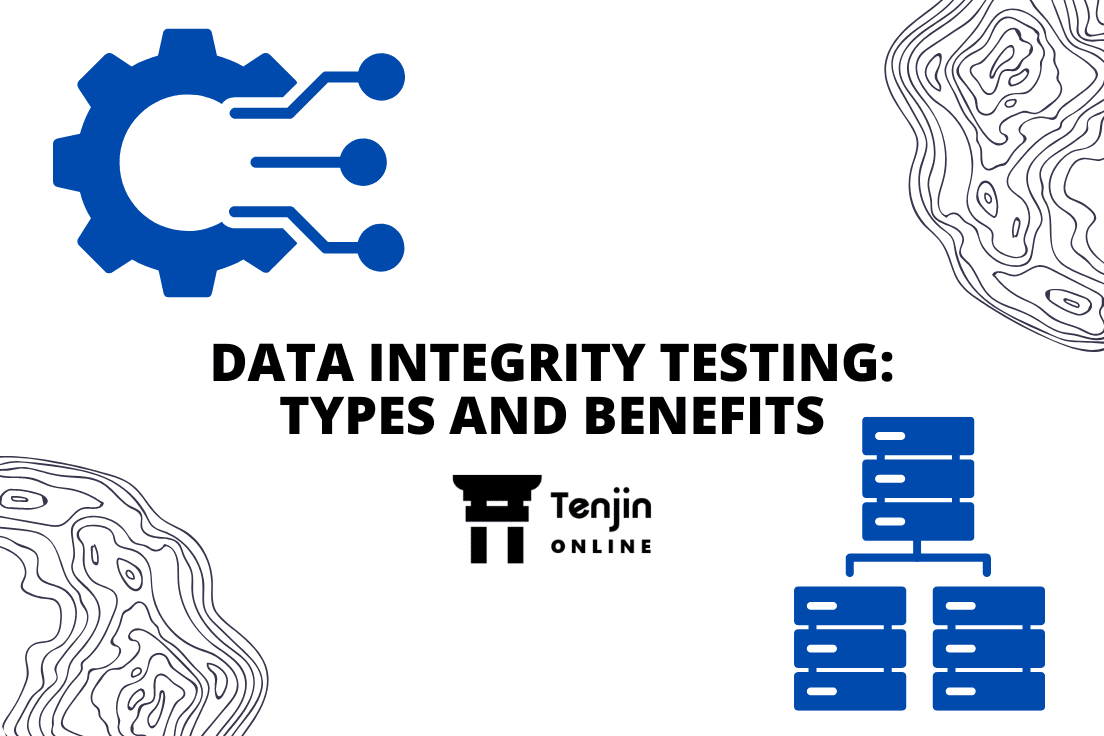
Data integrity refers to the accuracy and consistency of data stored in a computer system. It is a critical aspect of data management, as it ensures that the data is accurate, consistent, and reliable. Data integrity is essential for making accurate and reliable decisions based on the data, and it is a fundamental requirement for maintaining the trust of users and stakeholders in the data processing and management sector.
There are several factors that can affect data integrity, including software errors, hardware failures, and human errors. Software errors can occur when there is a bug in the code that is used to manage the data, while hardware failures can occur when a piece of hardware, such as a disk drive, fails. Human errors can occur when a user enters incorrect data or makes a mistake when using the software.
In order to ensure that data integrity is maintained, thorough data integrity testing should be performed. In short, data integrity testing can be referred to as the process of evaluating the accuracy, completeness, consistency, and reliability of data in a database or system. It is an important step in the software development lifecycle as it ensures that data is accurate, consistent, and usable for its intended purpose. Let us understand the benefits of maintaining data integrity and its different types.
Benefits of Data Integrity Testing
As mentioned above, data integrity testing is a process used to ensure that data is accurate, complete, and consistent within a database or system. There are several benefits to performing data integrity testing, some of them include:
Ensuring data accuracy: Data integrity testing ensures that the data entered into a system is accurate and free from errors. This is important because inaccurate data can lead to incorrect conclusions, poor decision-making, and wasted resources.
Detecting data inconsistencies: Data integrity testing can detect inconsistencies in data, such as duplicate records or missing information. This allows organizations to quickly identify and correct these issues, which can improve the overall quality of the data.
Improving data security: Data integrity testing can help organizations identify and prevent data breaches. For example, if a hacker attempts to alter or delete data, data integrity testing can detect these changes and alert the organization to the potential security threat.
Enhancing data integrity: Data integrity testing can help organizations maintain the integrity of their data, which is essential for maintaining the trust of customers, partners, and other stakeholders.
Saving time and money: By detecting errors and inconsistencies early on, organizations can save time and money by correcting them before they cause more significant problems down the line.
Compliance: Data integrity testing is also crucial for organizations that are subject to strict regulatory requirements, such as those in the healthcare and financial industries. These organizations must ensure that their data is accurate and consistent to comply with regulations and avoid a hefty fine.
Data integrity testing is an essential process for organizations of all sizes and industries. It ensures data accuracy, detects inconsistencies, improves data security, enhances data integrity, saves time and money, and helps organizations comply with regulatory requirements. Regularly performing data integrity testing can help organizations make better decisions, protect their reputation, and maintain the trust of their stakeholders.
Types of Data Integrity Testing
Data integrity is a critical aspect of data management, as it ensures that the data is accurate, consistent, and reliable. To ensure data integrity, it is important to have robust and reliable systems in place to manage and protect the data and to have strict policies in place for handling and using the data. Additionally, it is important to ensure consistency and accuracy, and to protect the data from unauthorized access and use. By maintaining data integrity, organizations can ensure that the data is trustworthy and reliable, and that it can be used to make accurate and reliable decisions.
There are several types of data integrity testing, including:
Domain integrity testing: This type of testing ensures that data is entered in the correct format and that it conforms to the rules and constraints set by the system or database. For example, a date field should only contain valid dates, and a phone number field should only contain valid phone numbers.
Referential integrity testing: This type of testing ensures that relationships between data in different tables or fields are maintained. For example, if a customer has multiple orders, there should be a relationship between the customer’s ID and the order’s ID.
Business rule testing: This type of testing ensures that data meets the business rules and requirements set by the organization. For example, a business rule may require that a customer’s credit score be above a certain threshold before they can place an order.
Data validation testing: This type of testing ensures that data is entered correctly and that it conforms to the rules and constraints set by the system or database. For example, a date field should only contain valid dates, and a phone number field should only contain valid phone numbers.
Data completeness testing: This type of testing ensures that all required data is present in the database or system. For example, a customer’s name and address should be present in the database before an order can be placed.
Conclusion
As mentioned in the article, data integrity plays a pivotal role in the software development sector and testing them becomes of utmost importance. Data integrity testing is performed to evaluate the reliability of the database, typically done using automated tools and scripts. These tools and scripts can be used to test data against a set of predefined rules and constraints, as well as to validate that data meets the requirements of the business.
It is important to note that data integrity testing is not a one-time process. It should be performed regularly to ensure that data remains accurate, consistent, and usable for its intended purpose. Additionally, data integrity testing should be performed after any major changes to the system or database, such as changes to the schema or the addition of new data fields. In conclusion, data integrity testing is an important step in the software development life cycle, as it ensures that data is accurate, consistent, and usable for its intended purpose. It should be performed regularly, and after any major changes to the system or database.



Leave a Reply
You must be logged in to post a comment.